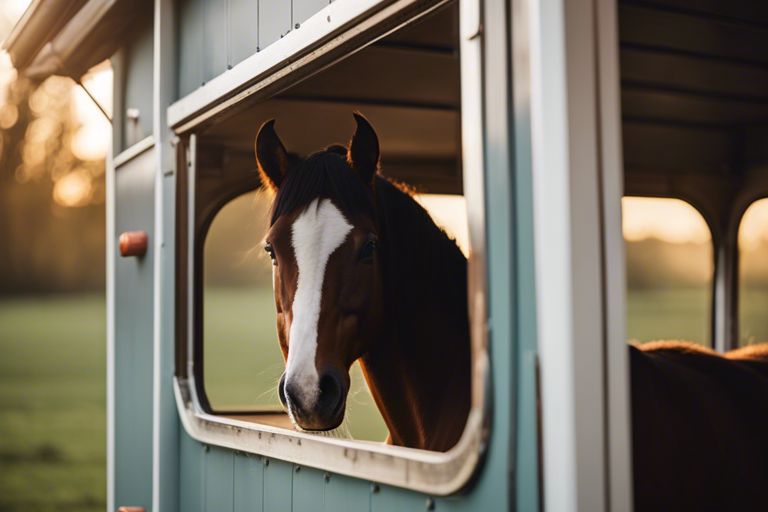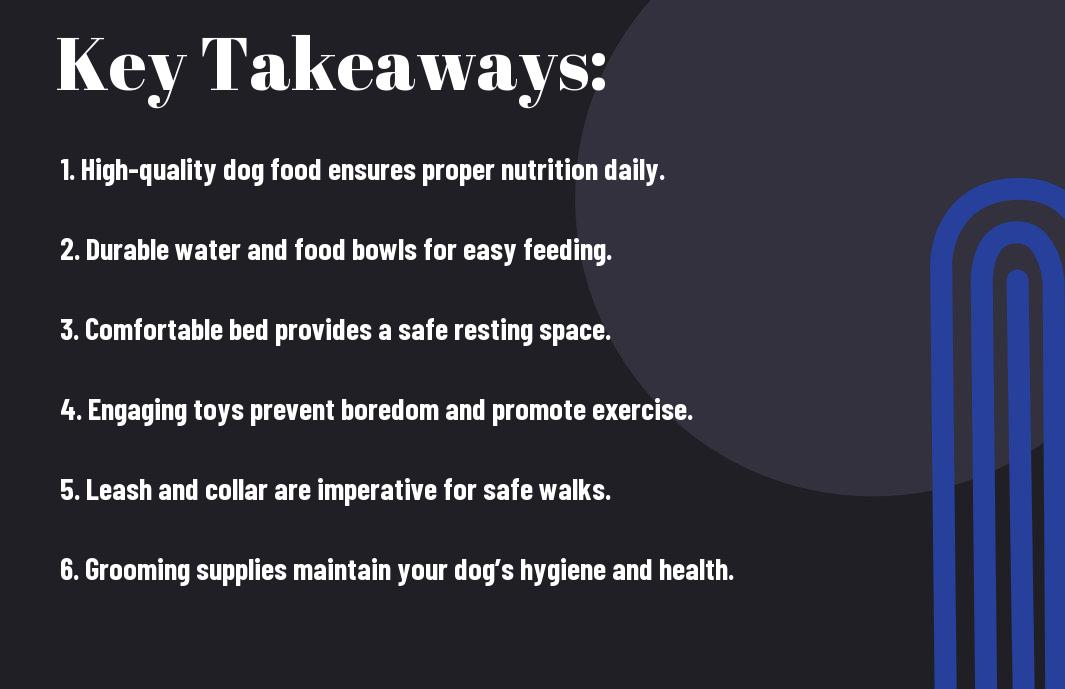When considering purchasing a used horse trailer, there are crucial factors to think about to ensure the safety and comfort of your equine companion. Inspecting the trailer thoroughly for any signs of wear and tear is imperative to prevent any potential hazards on the road. Checking the flooring, structural integrity, and ventilation are key aspects to focus on during your evaluation. By doing your due diligence and asking the right questions, you can make a well-informed decision that guarantees a secure and pleasant journey for both you and your horse.
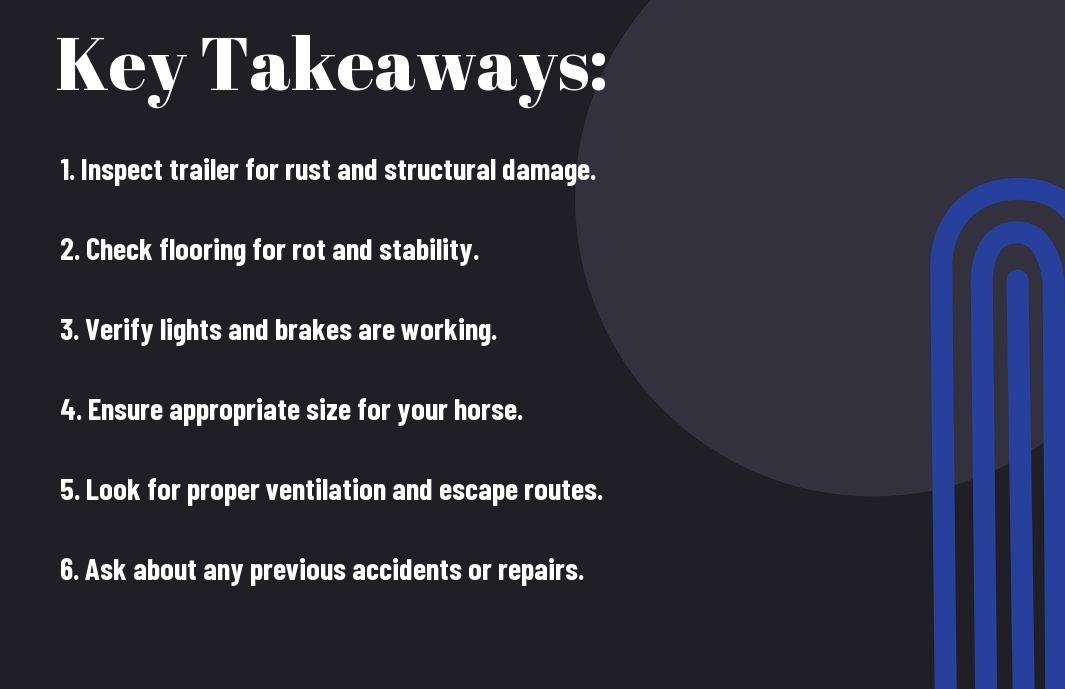
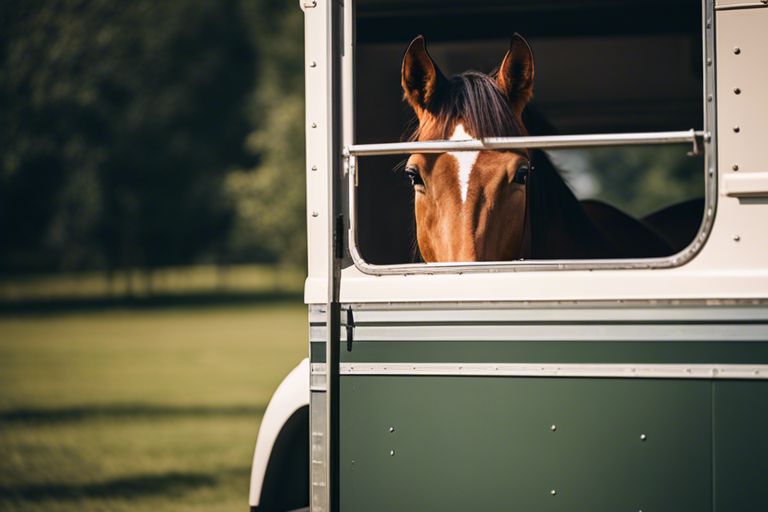
Research and Planning
While initiateing on the journey to purchase a used horse trailer, it is vital to start with thorough research and planning to ensure you make the right decision for both you and your equine companion.
Identifying Your Needs
With the wide variety of horse trailers available on the market, it’s crucial to identify your specific needs before starting your search. Consider factors such as the size and breed of your horse, how frequently you will be traveling, and the terrain you will be traversing to determine the most suitable trailer for your requirements.
Setting a Budget
To make a well-informed purchase, it’s important to establish a budget for buying a used horse trailer. Consider factors such as the age of the trailer, its condition, and any additional features you may require. Setting a budget will help you narrow down your options and prevent you from overspending.
For instance, you may need to factor in additional costs for maintenance and repairs that may be required for an older trailer. It’s also vital to leave room in your budget for unexpected expenses that may arise during the buying process.
Researching Different Types of Trailers
Before making a decision, it’s crucial to research the different types of horse trailers available to determine which one best suits your needs. Consider factors such as the material of the trailer, the number of horses it can accommodate, and the towing capacity required for your vehicle.
| Trailer Type | Features |
| Stock Trailer | Basic open trailer for livestock, versatile for different animals |
| Slant Load Trailer | Horses loaded at an angle, provides more space for each horse |
| Straight Load Trailer | Horses loaded straight, may be more suitable for larger horses |
| Gooseneck Trailer | Offers additional storage space in the front, provides stability while towing |
| Bumper Pull Trailer | Easier to maneuver, suitable for smaller towing vehicles |
After researching the different types of trailers, you can make an informed decision based on your specific needs and preferences. Consider factors such as the safety features, ease of loading and unloading, and overall comfort for your horse.
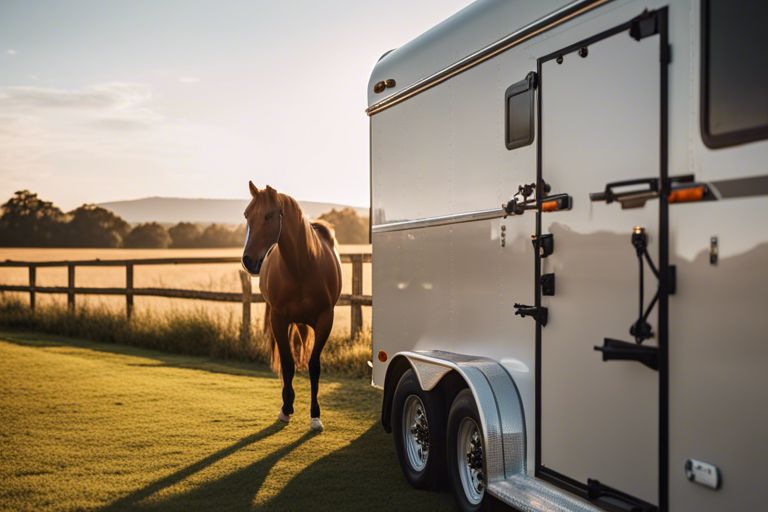
Inspecting the Trailer
Now, when you are considering buying a used horse trailer, it is important to thoroughly inspect the trailer to ensure it is safe and in good condition. By paying attention to key areas, you can make an informed decision before making a purchase.
Exterior Condition
With the exterior of the trailer, look for any signs of rust, dents, or damage. Pay close attention to the frame and structural integrity of the trailer, as any compromised areas could pose a safety risk for your horses during transport. Inspect the doors, windows, and roof for any leaks, gaps, or loose parts that could potentially cause problems while on the road.
Interior Condition
Interior wise, check for any signs of wear and tear such as damaged flooring, walls, or dividers. Ensure that the trailer is clean and free of any sharp edges or protruding objects that could injure your horses. Test the functionality of the doors, ramps, and latches to guarantee they work smoothly and securely.
Inspecting the interior of the trailer is crucial to providing a safe and comfortable environment for your horses during transportation.
Tires and Wheels
Wheels and tires are vital components to inspect on a horse trailer. Check the tread depth, tire pressure, and overall condition of the tires to avoid any blowouts or flats on the road. Inspect the wheels for any signs of damage or rust that may affect their performance.
Properly maintained tires and wheels are important for a smooth and safe journey with your horses.
Electrical and Plumbing Systems
Condition of the electrical and plumbing systems is another critical aspect to consider when inspecting a used horse trailer. Test all the lights, brakes, and signals to ensure they are functioning correctly for safe towing. Make sure the plumbing system, if applicable, is leak-free and in good working order.
Understanding the condition of the electrical and plumbing systems will help prevent any unexpected issues while on the road, providing a stress-free journey for you and your horses.
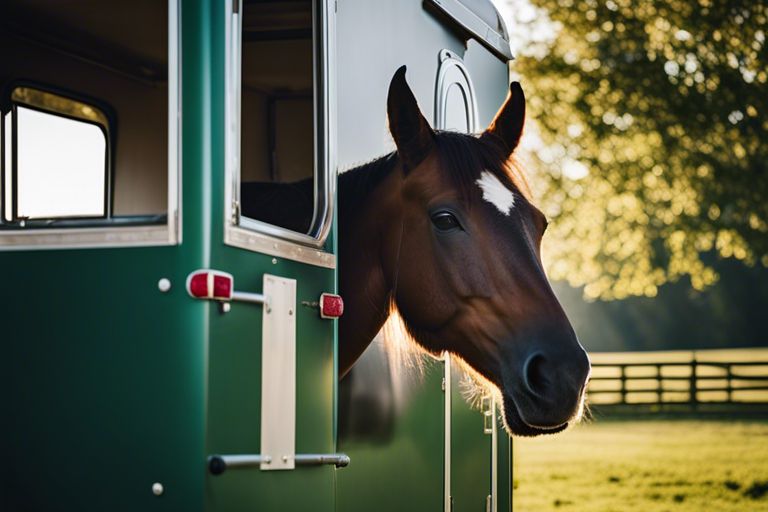
Checking the History
After finding a used horse trailer that catches your eye, it’s crucial to research into its history to ensure it’s a safe and reliable choice for you and your equine companion.
Asking the Right Questions
With any used trailer purchase, it’s important to ask the seller a series of questions about the trailer’s history. Inquire about how long they’ve owned it, how often it was used, and if there have been any accidents or major repairs. It’s also important to ask about the trailer’s towing history to understand how it has been maintained and used over time.
Verifying Maintenance Records
Records of regular maintenance are a good sign that the trailer has been well cared for. Ask the seller for any maintenance records, including service receipts and repair documentation. Verifying that routine maintenance tasks such as wheel bearing greasing, brake checks, and floor inspections have been consistently performed can give you peace of mind about the trailer’s condition.
History checks can also be conducted using online services that provide vehicle history reports, much like those used for cars. These reports can uncover any past damage, ownership history, or potential red flags that the seller might not disclose.
Checking for Any Recalls
The safety of your horse trailer is paramount, and checking for any recalls on the specific make and model of the trailer is crucial. Recalls are issued when a safety or structural issue is discovered, and getting any necessary repairs or modifications done is vital to ensure the trailer is safe for use.
For instance, if there was a recall on the trailer’s braking system and it hasn’t been addressed, it could pose a serious risk while hauling your horses. Make sure to research any recalls before finalizing your purchase to guarantee your trailer is in top condition.
Test Driving the Trailer
All horse trailers on the second-hand market are unique, so it’s crucial to take the trailer for a test drive before making your purchase. This step is necessary to ensure the trailer is safe and suitable for your needs. During the test drive, pay attention to how the trailer handles on the road, how it brakes, and how it reacts to turns.
Hooking Up and Towing
Driving a horse trailer requires skill and practice, so it’s important to test how the trailer hooks up to your vehicle and how it tows. Make sure the trailer hitch is compatible with your vehicle and that all the lights are working properly. You should feel confident in your ability to control the trailer while driving, so take your time to practice maneuvering it in different conditions before finalizing your purchase.
Loading and Unloading Horses
Horses can be sensitive to trailers, so it’s necessary to test how they load and unload from the trailer you are considering. **Ensure** the ramps are sturdy and non-slip to prevent any accidents. **Watch out for** any signs of hesitation or stress in the horses while loading and unloading, as this could be a red flag indicating potential issues with the trailer’s design or condition.
When loading horses into the trailer, **make sure** the space is appropriate for the size and number of horses you will be transporting. **Check** for any sharp edges or protruding objects that could harm the horses during transit. **Remember** that the comfort and safety of your horses should be your top priority when selecting a horse trailer.
Testing the Brakes and Suspension
One **crucial** aspect of test driving a used horse trailer is **testing** the brakes and suspension. **Ensure** that the brakes are responsive and that the trailer can come to a complete stop smoothly. **Check** the suspension for any signs of wear or damage, as this can affect the stability of the trailer while in motion.
Another **important** factor to consider is **how** the trailer handles bumps and rough terrain. **Look out for** any unusual noises or vibrations that could indicate issues with the suspension system. **Remember** that a well-maintained suspension is **critical** for ensuring a smooth and safe ride for your horses during transport.
Negotiating the Price
Not everyone feels comfortable with negotiating, but when it comes to buying a used horse trailer, it can save you a significant amount of money. Here are some tips to help you navigate the negotiation process and secure a fair price for your purchase.
Knowing the Market Value
Negotiating the price of a used horse trailer starts with knowing its market value. Research the prices of similar trailers in your area to get an idea of what is a reasonable range. Look for trailers with similar age, condition, size, and features to **get a sense of the market**. This information will **empower you** during negotiations, helping you make an informed decision.
Making an Offer
On approaching the seller, start by pointing out any **flaws or imperfections** you have noticed in the trailer. This can justify your offer and potentially lead to a lower price. **Make an offer** that is slightly below what you are willing to pay, giving yourself room to negotiate. **Stay polite** and respectful throughout the process to **maintain a positive relationship** with the seller.
When making an offer, be prepared for **counteroffers** from the seller. **Negotiation** is a give-and-take process, so be **flexible** and willing to compromise to reach a **mutually beneficial** agreement. Remember to **stick to your budget** and not exceed the maximum price you set for yourself.
Being Prepared to Walk Away
Offering the **seller** with your last and final offer and being prepared to walk away if the seller does not **meet your price** can sometimes lead to a **favorable outcome**. **Resist the temptation to overspend** if the seller is not willing to negotiate further. **Being prepared to walk away** can sometimes **persuade the seller** to reconsider their position and come back with a **better deal**.
The negotiation process is a **delicate** balance of asserting your needs and being respectful of the seller’s position. **Staying firm** on your budget and **understanding your worth** as a buyer will **help you navigate** the negotiation process successfully.
Additional Considerations
Once again, there are a few more things to consider when buying a used horse trailer to ensure you make the best decision for you and your equine companion.
Financing Options
Any financing options should be carefully considered before purchasing a used horse trailer. Some dealers may offer financing plans with competitive interest rates, making it easier for you to afford the trailer of your dreams. However, be sure to read the fine print and understand all terms and conditions before signing any agreements.
Insurance Requirements
The insurance requirements for a used horse trailer may vary depending on your location and intended use. It’s imperative to protect your investment with adequate insurance coverage that includes liability, collision, and comprehensive coverage. This will give you peace of mind knowing that you and your horse are protected in the event of an accident or theft.
The insurance requirements for a horse trailer are important to consider, especially when transporting your beloved animals. Making sure you have the right coverage can save you from significant financial loss in unforeseen circumstances.
Storage and Maintenance Costs
Additional storage and maintenance costs should also be factored into your budget when purchasing a used horse trailer. You will need to find a suitable place to store the trailer when not in use, as well as budget for regular maintenance and repairs to keep it in optimal condition. This includes checking the brakes, tires, electrical systems, and floorboards regularly to ensure the safety of your horse during transport.
Additional storage and maintenance costs are crucial for keeping your horse trailer in top condition and ensuring the safety of your horse while on the road. Regular inspections and maintenance will help extend the life of your trailer and prevent any costly repairs down the line.
Summing up
With this in mind, when it comes to buying a used horse trailer, it is crucial to do your research, thoroughly inspect the trailer, and ensure it meets your specific needs. Remember to check for structural integrity, safety features, and maintenance records to make an informed decision. By following these tips, you can find a reliable and safe horse trailer that will meet both your needs and your horse’s needs.
Q: What should I look for when buying a used horse trailer?
A: When buying a used horse trailer, you should carefully inspect the overall condition of the trailer, including the floors, walls, roof, tires, brakes, lights, and electrical systems. It’s also important to check for any signs of rust, corrosion, or structural damage.
Q: How do I determine the right size of a horse trailer for my horses?
A: The size of the horse trailer you need will depend on the size and number of horses you plan to transport. It’s recommended to choose a trailer that allows your horses to stand comfortably, have enough space to move around, and can safely accommodate their weight.
Q: Is it important to check the towing capacity of my vehicle before buying a horse trailer?
A: Yes, it’s crucial to check the towing capacity of your vehicle before purchasing a horse trailer. Exceeding the towing capacity can be dangerous and cause damage to both your vehicle and the trailer. Consult your vehicle’s manual or a professional to determine the appropriate towing capacity.
Q: What are some important safety features to look for in a used horse trailer?
A: When buying a used horse trailer, make sure it has safety features such as a secure hitch system, reliable brakes, emergency breakaway system, proper ventilation, sturdy dividers, and escape doors. These features are crucial for the safety and well-being of your horses during transportation.
Q: Should I have a pre-purchase inspection done on a used horse trailer?
A: Yes, it’s highly recommended to have a pre-purchase inspection done on a used horse trailer by a qualified mechanic or trailer expert. This inspection can help identify any existing issues, assess the overall condition of the trailer, and ensure that it meets safety standards before making a purchase.
